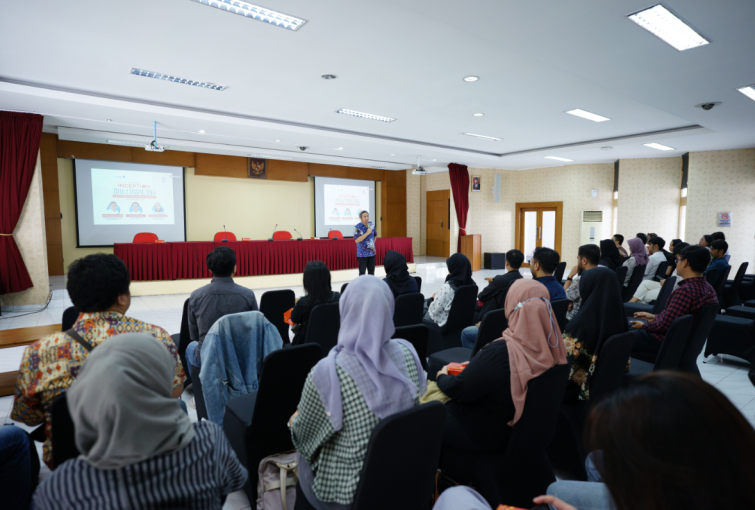
Yogyakarta, December 15th 2023─In the midst of the post-truth era and misinformation that is increasingly widespread, especially welcoming the 2024 elections, Fisipol UGM collaborates with Tirto.id to launch the Inception program. In this activity, there was also a signing of cooperation between Fisipol and Tirto.id as well as a public discussion with the theme “Digital Literacy Towards Quality Journalism” on Friday (15/12) in the East Seminar Room of Fisipol. The discussion was attended by speakers Slamet Santoso (Director of Informatics Empowerment, Ditjen Aptika Kominfo), Rachmadin Ismail (Editor-in-Chief of Tirto.id), and Ni Made Diah Apsari Dewi (Researcher of Institute of International Studies).
Inception is a program promoted by Tirto.id, Fisipol and Kominfo to fight misinformation through digital literacy. This collaboration program between media, experts/researchers, and the government to produce content containing digital literacy aims to counteract misinformation that is widespread and fast in the digital world. The Faculty of Social and Political Sciences UGM academic community can participate in this program.
Rachmadin said that misinformation must be fought from upstream to downstream. “Downstream is misinformation that needs to be straightened out. Upstream is tackled through cooperation with the government for digital literacy campaigns and the provision of programs and training on digital literacy as well as meetings with deans (academics) to create collaborative workshops,” he explained.
The flow of this Inception program is to hold discussions and training on digital literacy to fight misinformation, then joint content production between academics (researchers, lecturers, students of Fisipol UGM) on Tirto.id’s special channel, Inception, ending with an appreciation night for participating digital literacy activists.
Meanwhile, Slamet also hopes that this collaboration will also be carried out by providing material from Kominfo related to digital literacy to Fisipol students who conduct Community Service (KKN) as an effort to spread digital literacy in the community.
“This digital world creates new opportunities for the younger generation to become content creators who create positive and productive spaces,” he continued.
Meanwhile, according to Diah in her research, the low level of digital literacy in Indonesia is caused by the digital world as a normative area separated from civic responsibility and digital users who are still passive or only as spectators. So the solution she offers can be done by strengthening democracy, critical media literacy, and making misinformation a common issue.
